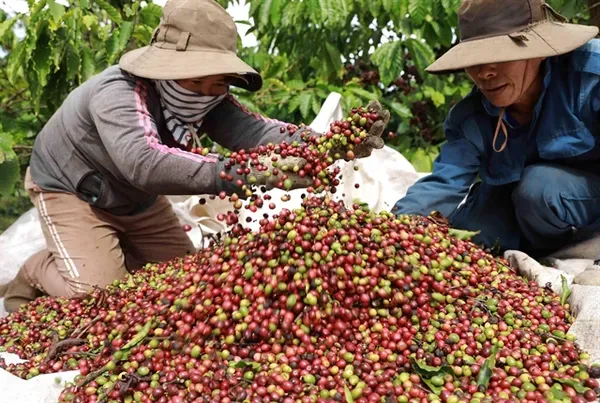
Last year, the export revenue of agricultural products hit US$25 billion, with great contributions from industrial plants such as coffee, cashew, peppercorn, tea and rubber. Two products with export turnover of over US$3 billion were coffee (US$4.18 billion) and cashew nuts (US$3.63 billion).
According to the Agency of Foreign Trade under the Ministry of Industry and Trade, in 2023, Vietnam benefited from a price hike of Robusta coffee. The country shipped abroad 1.61 million tons of coffee, with an average price of US$2,834 a ton, up 14.1 percent year on year.
In 2024, the coffee sector is forecast to continue to benefit from the high price of Robusta coffee, which is predicted to hit a new record due to concerns about a supply shortage.
For the cashew sector, last year, growth was seen in all traditional markets of Vietnam despite teh economic crisis.
According to the Vietnam Cashew Association (Vinacas), sales of this healthy product is forecast to increase in 2024, while productivity and output are predicted to remain stable.
Meanwhile, in 2023, despite an increase in export volume, the value of peppercorn exports saw a drop of 6 percent compared to 2022, mostly due to a sharp drop of 19.4 percent in prices.
However, Nguyen Tien Dung, Sustainability Manager of Dak Lak September 2 Import-Export Company Limited, held that this year, the biggest challenge facing the coffee sector is sustainable development criteria, especially the EU Deforestation Regulation (EUDR).
Head of the Vietnam Peppercorn Association (VPA)’s Office Le Viet Anh underlined that Vietnamese peppercorn is also encountering great barriers from increasing technical standards of markets, especially in terms of quality and food safety.
At the same time, the cashew sector is facing pressure from green production transition to meet increasingly strict requirements in terms of environment and social responsibilities in foreign markets, especially the US and European countries.
























